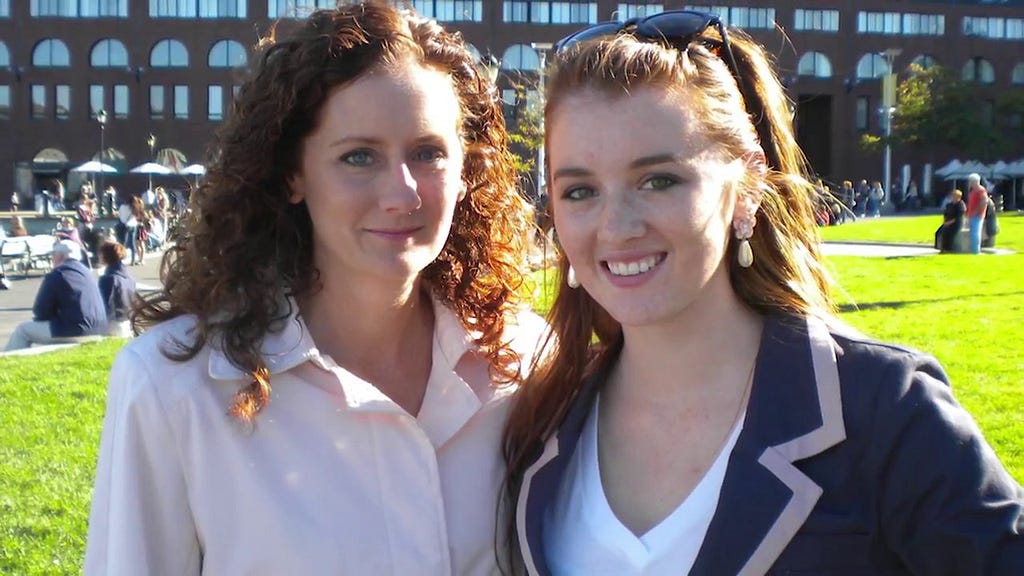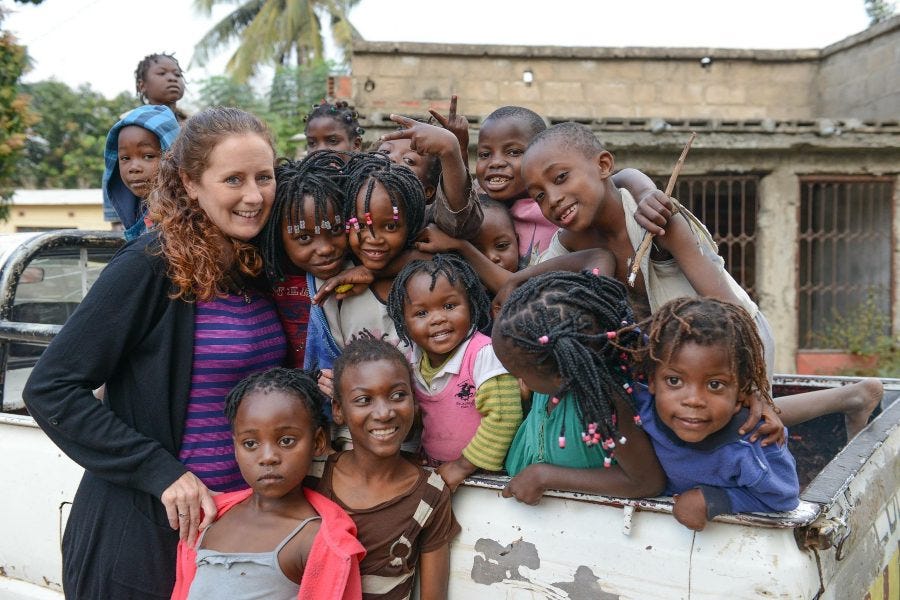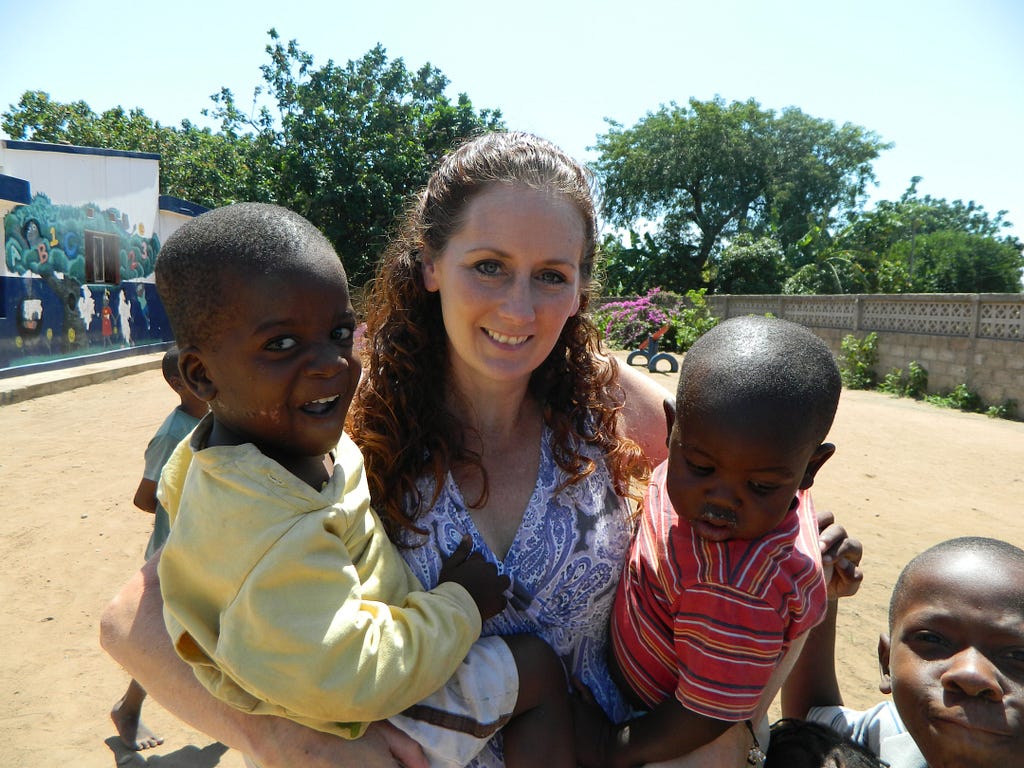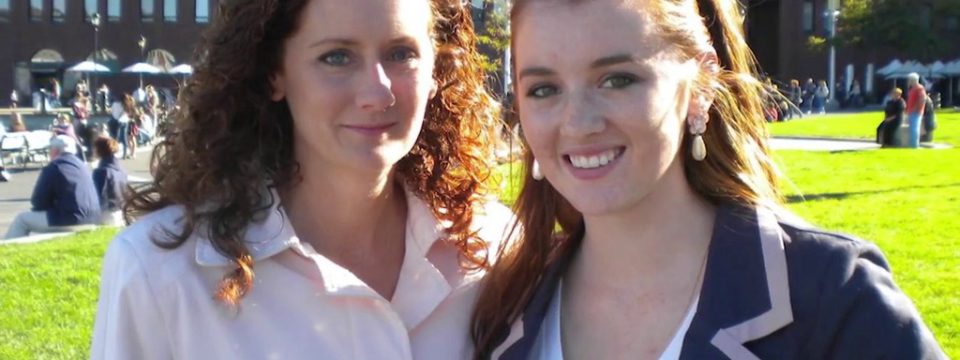Social Impact Heroes: Terri Larson gives back 90% of profits to help the surrounding poor, orphaned, and farming communities

My husband and I made a choice to put the needs of others before our own. There is a lot of suffering in the world and we could no longer go on pretending it was not out there. We got to the point where we realized that life is not about “me”. We were living the American Dream and had every material thing a person could want, but we were not truly happy. We wanted and continue to want to make a difference in people’s lives. This is why we sold everything and invested it into founding Sunshine Nut Co. By roasting our cashews at the source where they are grown, we provide our customers with a fresh, buttery cashew like nothing they have ever tasted. Each bag provides hope, opportunity and transformation by providing jobs for the 30 people at our roasting facility, a thousand people at the factory that deshell the cashews, and 50,000 farming families whose harvest we utilize. On top of that, we give back 90% of the shareholders’ distributed profits to help the surrounding community- 30% to care for orphans and vulnerable children, 30% to uplift the farming communities from where we purchase our cashews, and 30% for new factories to grow the concept.
I had the pleasure to interview Terri Larson. Terri is the Director of Social Impact for Sunshine Nut Co. She lives in Mozambique, Africa where the company is based and works alongside those in the factory, farming communities, and surrounding neighborhoods. Her role is to administer and oversee the 90% of shareholders’ distributed profits that are used to help lift up the poor and orphaned, the farming communities, and the Sunshine Nut Co. employees to transform their lives.
Thank you so much for doing this with us! Can you tell us a story about what brought you to this specific career path?
My husband had a vision to use his previous education and career experience to build a food factory in a third world country to develop lasting economic transformation. This led to the founding of the Sunshine Nut Co in Mozambique, Africa. At first, we felt he would do this work while I stayed in Philadelphia where I had a teaching position and continue working and caring for my family. We had one child in university, one in senior high, and one in junior high. Yet it became clear that “two are better than one”. We made a commitment to give 90% of the distributed profits of our company back to the poor and orphaned. My role would be to coordinate the projects from those donated proceeds to help transform people’s lives who desperately need these hand ups. Because of this, I made the decision to move with him. We sold everything we owned (home, cars, furniture, household items), said goodbye to all of our family and friends, sent our daughter off to her junior year of university and our older son stayed with a host family for his senior year of high school. On July 28, 2011, Don and I with our youngest son, then in grade 8, boarded a plane to Mozambique with our two suitcases each to begin a new season of life. I started out my career as a teacher but have travelled down an entirely different path. I have found that everything in my life has led to this role and wouldn’t want to be doing anything else.

Can you share the most interesting story that happened to you since you began leading your company?
It was a huge learning curve to adjust to life in Mozambique. The language, culture and way of life are so different. We have overcome many challenges over the past 8 years. It has not been easy. Yet so many times, I cannot believe that I am living in Africa and experiencing the things I get to see and do here. I am often overcome with emotion by moments that touch my heart deeply- some are joyful and uplifting and others break my heart. It is a privilege to live and work with the people here.
One such experience was when we were working out in a remote village. After dinner, we were sitting around a fire chatting with our host. We could hear drums playing nearby. Our host said that it was a group of Xingomana dancers practicing their traditional dance. She took us on a short walk to see them. They sat us down in plastic chairs and began to dance for us. It was absolutely amazing- the pounding of the drums, the girls dancing and stomping their feet in the dirt as the dust swirled around them, their grass skirts swinging at their waists- all of this happening under the light of a full moon with no electricity anywhere near us. It brought me to tears- how does a small town girl end up experiencing this?
Can you share a story about the funniest mistake you made when you were first starting? Can you tell us what lesson you learned from that?
We were robbed at gunpoint in our home during our first year in Mozambique. During the robbery, I, along with my two sons, was being held outside the house by one of the men. Inside the house, another man was pushing my husband around with an AK47 as he searched for the car keys. Don could not find them. A point of contention between us was that he never put his keys in the same place, so we were always hunting for them. The man with Don told him that if he did not find the keys by the time he counted down to zero, he would shoot him. As he began counting down, Don called out, “Terri! Do you know where my car keys are?” To which I responded, “Don! I’m always telling you to put them in the same place because one day you are going to need them and won’t be able to find them, but you never listen to me!” Fortunately for us, the man reached zero…he looked at Don…Don looked at him…and he began counting again. Eventually the keys were found and they took off in both of our cars. At the moment it was not very funny, but we now laugh about this and consider it to be one of my funniest mistakes. On a side note…we now have a wooden bowl on a counter right inside the door where Don drops his keys each time he enters the house.
My lesson I learned…there are times to get out your frustrations on others and times when you need to hold your tongue.

What do you think makes your company stand out? Can you share a story?
My husband and I made a choice to put the needs of others before our own. There is a lot of suffering in the world and we could no longer go on pretending it was not out there. We got to the point where we realized that life is not about “me”. We were living the American Dream and had every material thing a person could want, but we were not truly happy. We wanted and continue to want to make a difference in people’s lives. This is why we sold everything and invested it into founding Sunshine Nut Co. By roasting our cashews at the source where they are grown, we provide our customers with a fresh, buttery cashew like nothing they have ever tasted. Each bag provides hope, opportunity and transformation by providing jobs for the 30 people at our roasting facility, a thousand people at the factory that deshell the cashews, and 50,000 farming families whose harvest we utilize. On top of that, we give back 90% of the shareholders’ distributed profits to help the surrounding community- 30% to care for orphans and vulnerable children, 30% to uplift the farming communities from where we purchase our cashews, and 30% for new factories to grow the concept.
Are you working on any exciting new projects now? How do you think that will help people?
When we moved to Mozambique, we knew we would be giving 30% of our profits to the orphaned. We assumed that would be by simply giving to the orphanages. Yet as we spent time here, we realized that the best care for a child is not in a center but in a family. We developed our Sunshine House Model. We buy a home, fix it up, and fill it with all a family would need to live comfortably- furniture, linens, stove, etc. We then pair up a widowed or abandoned woman with 3–4 orphaned children. We provide for their monthly expenses of food, water, and electricity. We also provide for any educational and medical needs the children have. In this way, the children are being raised by a Mozambican, in a Mozambican community, within the Mozambican culture. Our hope is that when they are finished with their education and are sent out to live as an adult, they will be prepared to find success living in the harsh conditions that exist in Mozambique. We currently have 3 Sunshine Houses and are ready to grow this concept.
In addition, the woman who heads each Sunshine House leads a project for the neediest of needy children in her community each day. The children come to receive lots of love, learning, play time, food, and we also take care of their education and medical needs when necessary. We call this our “Beacons of Light” program because we can reach out into the community to help others.
What advice would you give to other female leaders to help their team to thrive?
I would advise other female leaders to listen to their team. Sometimes as a leader, we can get too focused on directing others. Yet those who work alongside of us have really good ideas and input to offer. Mozambique has taught me to be patient and wait for the right timing in every situation. If we do not use caution and listen to the counsel of those around us, we can forge ahead and make a costly mistake.
What advice would you give to other female leaders about the best way to manage a large team?
I would advise other female leaders to identify people within their team who have strong leadership qualities themselves. Then a large team can be divided into smaller groups led by leaders who then report to you. This also creates a sense of trust and relationship that is invaluable when leading a team.
None of us are able to achieve success without some help along the way. Is there a particular person who you are grateful towards who helped get you to where you are? Can you share a story about that?
When my husband and I arrived in Mozambique, we knew almost nothing about the country or its culture and had no connections. Not only that, but we could not yet speak the language beyond “Hello”, “Goodbye”, and “Where’s the bathroom?”. From day one, our administrative manager, Prescila Canotilho, has walked every step of the way with us and helped us navigate learning to live life and run a business in Mozambique. She is not just an employee, she is family. As an employee, she has been instrumental in every part of the business and social work we have done. As family, she has been there for us at any hour of the day or night when we needed her. She has completely given herself to support us and to make Sunshine Nut Co. what it is today.
How have you used your success to bring goodness to the world?
I have used my success by laying it all down to bring goodness to the neediest of the needy. By giving up my successful life in America, I was able to move to Mozambique where I can influence and pour into people who have never had any hope or opportunity offered to them. The people here have no lack of talent or resources. I am reminded of that fact daily. But they do sometimes lack the “know how” to use their talent and resources in a productive way. I no longer have the material things I once possessed, but the rewards of what I do far outweigh any “stuff” I ever had.
What are your “5 Leadership Lessons I Learned From My Experience” and why. (Please share a story or example for each.)
1. A good leader is a good servant. She does not just direct her team, but she gets involved and works alongside them. The first Sunshine House we purchased did not have the perimeter wall needed to safely secure and protect our family. So I worked with a group of Sunshine Nut Co. employees to build this wall. Together we worked under the hot African sun day after day, side by side. One day, the workers took their morning tea break but I was motivated to continue working. As I was digging, a man from the village walked by, stopped in his tracks, and looked at the employees sipping tea in the shade of a tree and then back to the white woman digging this ditch in the sun. His remark, in Portuguese, was “This is not something you see every day.” We all laughed and he continued on his way. Here it is very uncommon to see a leader doing manual labor alongside their employees, but I believe a good team is led by someone who is willing to do the same task that you request of your team members.
2. A good leader moves cautiously. As leaders, we have a mission to complete and we tend to want it done and we want it done now. We can be impatient and push tasks through to completion which can result in disastrous consequences. A good leader knows when to move and when to wait. My family and I have a funny saying of “This is Africa”. When something does not go the way we want it to go, we simply laugh, throw up our hands and say this statement. Africa moves according to its own pace. As an outsider, I have had to learn to be patient and not get upset when everything is not crossed off my list at the end of the day.
3. A good leader shares her vision with those on her team and gets them excited about the end goals. People love having a purpose that is meaningful. We make it a point to meet regularly with our employees whether it be the workers at the factory or the ladies who lead our Sunshine Houses to share our vision with them and help them understand why we are doing what we do. Because we do this, they see their role as more than just a worker but as a cog in the grand vision of Sunshine Nut Co.
4. A good leader has relationship with those on her team. She invests in knowing them personally. I have found that people are more willing to work alongside you and invest in their work when they feel safe, comfortable, and valued. When Zelda, the caretaker at our first Sunshine House, celebrated her birthday this past year, she invited us to join her and the children for dinner. She has worked with us for four years and this is the first time she has invited us to anything at their home. This revealed to us that we have taken many steps to a deeper relationship. Everything that we have invested in her and the children is coming to fruition.
5. A good leader knows when to get outside support and assistance. When we first moved here, we frequently asked for help and guidance. As newcomers, we needed to know our limitations and be humble enough to ask for help.
You are a person of great influence. If you could inspire a movement that would bring the most amount of good to the most amount of people, what would that be? You never know what your idea can trigger. 🙂
I would like to inspire others to live for more than just themselves. Life is not about me. It is about serving the people around me. You do not have to give up everything and move to a foreign country to do this. There are people around you right now whom you can serve. You needn’t do “big” things to make a meaningful impact on the world. You can start with that one person in your path today who needs help.
Can you please give us your favorite “Life Lesson Quote”? Can you share how that was relevant to you in your life?
My favorite Life Lesson Quote comes from Mother Teresa. She said “We ourselves feel that what we are doing is just a drop in the ocean. But the ocean would be less because of that missing drop.”
There is so much suffering and need around me every day, all day. It is overwhelming. I would often feel so saddened and overwhelmed by the poverty and suffering around me. I would think to myself, “I am one person. How can I make a difference?”. Yet this quote really put things into perspective for me. It made me realize that I can help the one person that is placed before me. Then I can move on to the next one, and the next one…as I have capacity. I can make a difference in the lives of those I am presented with each day.
Social Impact Heroes: Terri Larson gives back 90% of profits to help the surrounding poor… was originally published in Authority Magazine on Medium, where people are continuing the conversation by highlighting and responding to this story.
